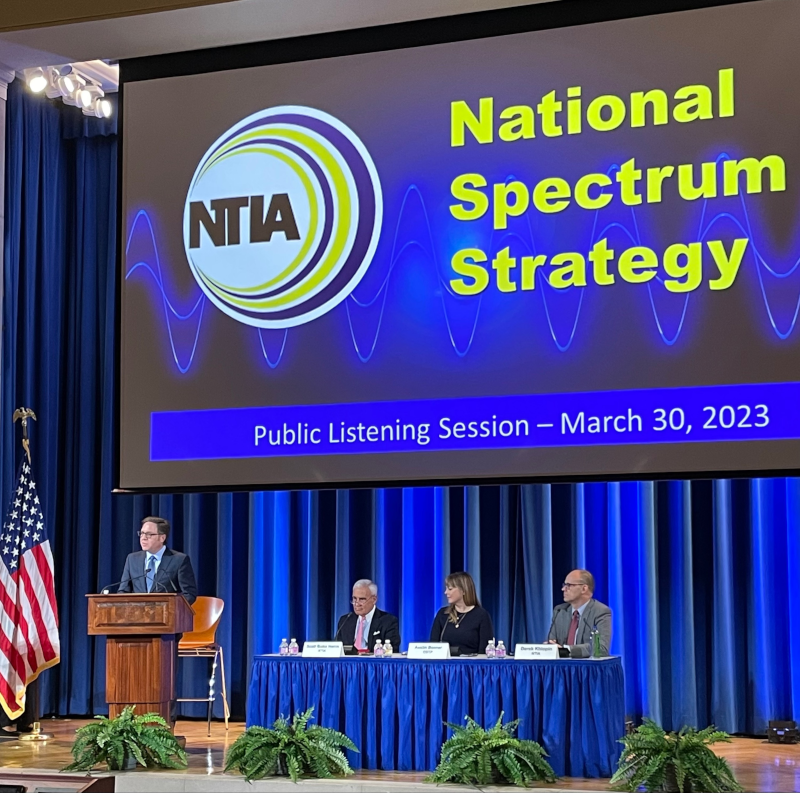NTIA Blog
Three Takeaways from Version 2 of the FCC’s National Broadband Map
Federal programs boost budget for high-speed Internet service
Secure Internet Routing
By Bob Cannon, Senior Telecommunications Policy Analyst, NTIA
My name is Bob. I am number six.
Do you believe me?
If I were wrong… would you know?
In the 1960s television show “The Prisoner,” retired secret agents are held captive in a place known only as “The Village” and assigned numbers to replace their identities. Protagonist “Number Six” quickly learns that what one claims to be and what one is can be two different things.
Internet routing is a bit like life in The Village. One network whispers to a second that it is number six. The second network then tells two other networks that it can send traffic to number six. And those two networks tell two more networks that they can reach the network that reaches number six. And so on. Networks make routing decisions based on these whispers, following the path back to the network that says it is number six. Sometimes those whispers are right. Sometimes they are wrong. When they are wrong, Internet traffic can go astray.
A Proposal for More Privacy in Domain Name Personal Data
The National Telecommunications and Information Administration is embarking on an inquiry into whether more privacy protections are necessary for people who have registered “.us” domains on the Internet.
NTIA administers the contract for the country code top-level domain, for the United States, .us. The .us domain is used by American businesses, individuals, and localities.
NTIA’s contractor, Registry Services, is required by the agency to maintain a publicly accessible database of .us domain name registrations. Registry Services provides a directory service that allows anyone to obtain registration data without any authentication.
Personal information – including names, home addresses and phone numbers – is included in the registration database. Concerns have been raised that this information may be misused for abusive purposes, including doxxing, spam, or other harassment.
NTIA is working on multiple fronts to address data privacy concerns. To better protect the personal information of .us domain registration holders, NTIA is seeking comment on a Registry Services’ proposal that would require those that request access to registration data to provide an email address, identify a legitimate purpose, and accept Terms of Service.
A modern take on the family tradition
The innovative spectrum sharing framework connecting Americans across the country
Americans increasingly rely on radio spectrum for much of their daily lives. From texting friends to car navigation these airwaves play an invisible but central role.
Much like other important resources, spectrum access is finite. Demand continues to grow. Federal spectrum policy experts recognize this – and have come up with creative new ways to allow greater spectrum access by sharing this vital resource.
One innovative approach is the Citizens Broadband Radio Service, which allows for dynamic spectrum sharing between the Department of Defense and commercial spectrum users. The DOD users have protected, prioritized use of the spectrum. When the government isn’t using the airwaves, companies and the public can gain access through a tiered licensing arrangement.
This means the DOD can use the same spectrum for its critical missions while companies can use it for 5G and high-speed Internet deployment.
This is possible through automated sense-and-avoid dynamic access. This ground-breaking framework was made possible by rules established by the Federal Communications Commission in 2015, technologies standardized and developed by industry, and certification tests executed at NTIA's research and engineering lab, the Institute for Telecommunication Sciences (ITS).
And there were a lot of questions about whether it would work.
A new report from ITS shows that it is working.
A signal in the mesas
NTIA Celebrates April as National Supply Chain Integrity Month
This April marks the 6th annual National Supply Chain Integrity Month. NTIA and its Federal partners are pleased to participate in this campaign to raise awareness of the threats to supply chains, the resources available to mitigate such threats, and ways to build resilience to future risks.
This year’s theme is “Supply Chain Risk Management – The Recipe for Resilience.” The “recipe” for improving an organization’s resilience involves several key ingredients:
- Acquisition security,
- Information security,
- Insider threat mitigation, and
- Cybersecurity.
A comprehensive supply chain risk management (SCRM) program allows an organization to better understand its risk profile and where and when to implement mitigations throughout the supply chain lifecycle.
NTIA at 45: Building on Generations of Innovation
By Christopher Maximos, Intern in the Office of Congressional Affairs
I still remember the sense of wonder that I felt when I entered the Herbert Clark Hoover Building for the first day of my internship. I could almost feel the history of the Department of Commerce as I walked through meeting rooms filled with antiques and hallways blanketed by the portraits of previous Secretaries.
Yet, the fourth floor, where most of the National Telecommunications and Information Administration’s offices sit, is different. Colorful spectrum charts blanket the timeless marble walls. Staffers discuss emerging technologies like artificial intelligence and 5G in rooms that look out to the Washington Monument and the White House.
National Spectrum Strategy Input Showcases Diversity and Importance of Spectrum Uses
Wireless connectivity empowers nearly every aspect of modern life, and reliable access to spectrum resources is essential. So, it’s perhaps no surprise that NTIA has received an immense amount of feedback on the development of a National Spectrum Strategy since announcing the start of this effort on March 15. 
Most recently, the period for providing responses to NTIA’s Request for Comments (RFC) closed April 17. NTIA received 131 written comments from stakeholders who provided in-depth information in response to questions about the nation’s spectrum needs, how best to engage in long-term spectrum planning, and technology innovations that can help better manage the nation’s spectrum resources. The comments are now accessible both on NTIA’s website and on Regulations.gov.
